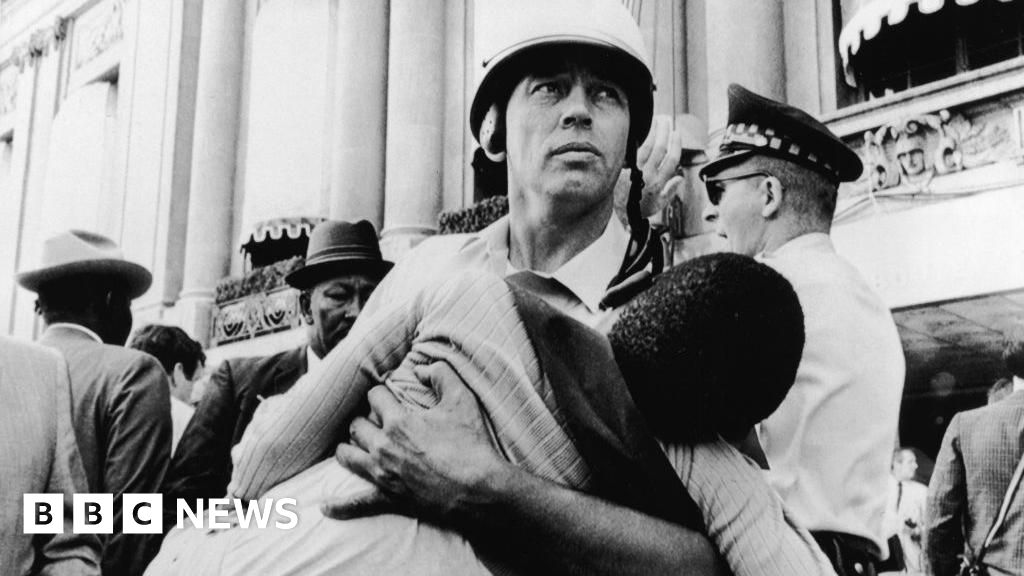Don Rose, who in 1968 was a spokesman for the National Mobilization Committee to End the War, one of the main protest groups, told the BBC that an even more significant difference was the Vietnam War itself.
That war, unlike the Gaza war, saw tens of thousands of Americans drafted, many of whom were killed or wounded overseas.
“The country was far more divided on the Vietnam War at that time. The protests expanded greatly because of the draft,” said Mr Rose, now 93.
“We were protesting at a convention that would nominate someone who could end the war with the stroke of a pen,” he added.
The Democratic Party at the time was also deeply divided over the war, and when delegates arrived at the DNC of 1968, they had no idea who would be leaving with the nomination.
When then-vice president Hubert Humphrey was finally chosen as nominee over anti-war Senator Eugene McCarthy, some in the audience even shouted “No!”.
“The convention was totally divided, and at war with itself,” explained Mr Stautter. “For [Kamala] Harris and Walz, it’s totally unified.”
Mr Peck, for his part, said that more recent versions of the DNC can no longer be called “nominating conventions”.
“These are just confirmation conventions,” he said. “They confirm what the people in states did at the primary levels. That’s really different.”
Ultimately, Hubert Humphrey went on to lose the 1968 election to Republican Richard Nixon.
Looking back, Mr Stautter – who will be watching the convention on TV this year – believes that the protests of 1968 had an impact on the US that could never be replicated in 2024.
“People who watched were totally radicalised by it, and many, many more people became involved in trying to stop the war,” he said.
“A whole generation, whether they were there or not, were marked by it.”

Emily Foster is a globe-trotting journalist based in the UK. Her articles offer readers a global perspective on international events, exploring complex geopolitical issues and providing a nuanced view of the world’s most pressing challenges.








